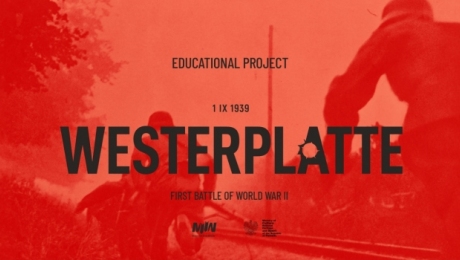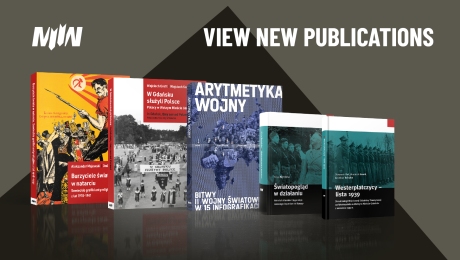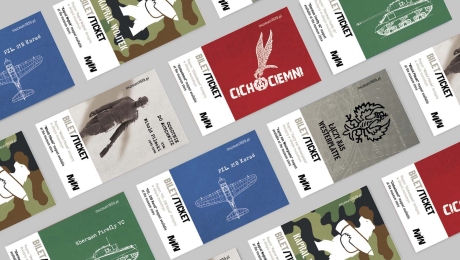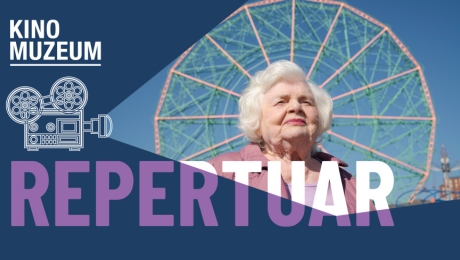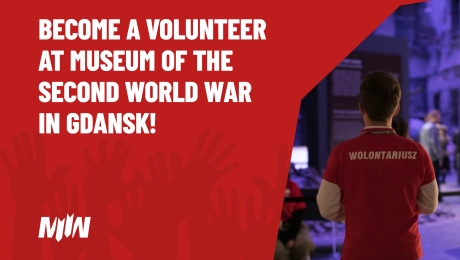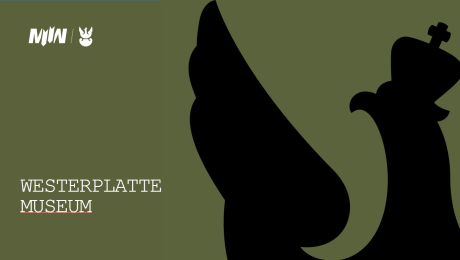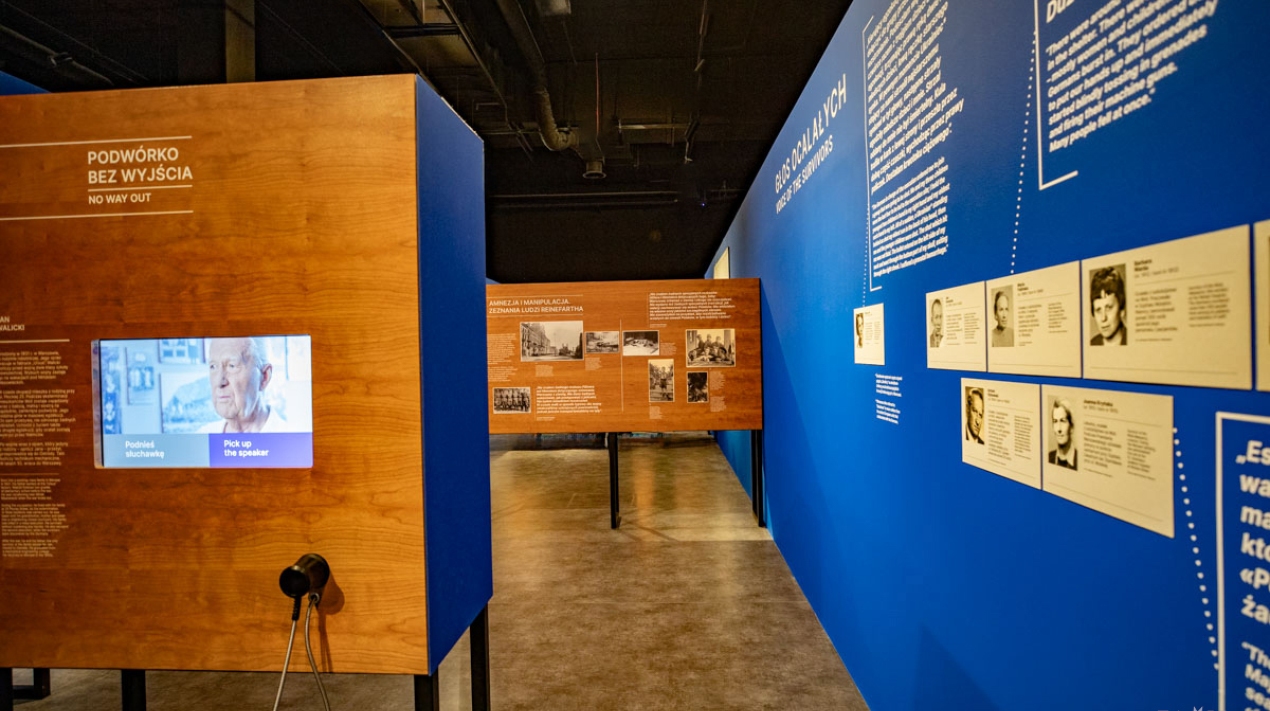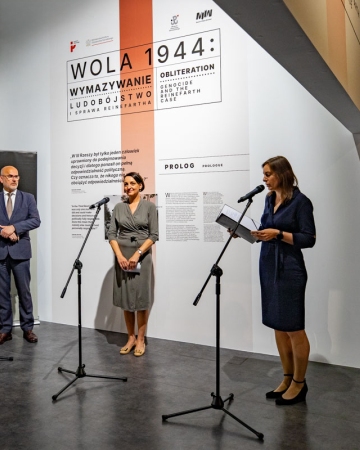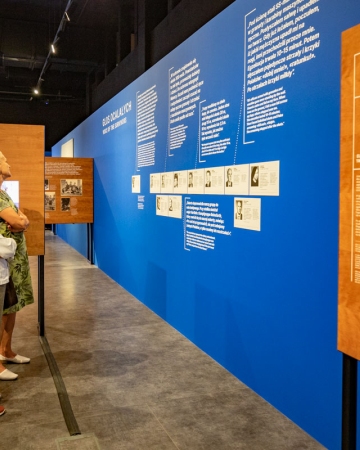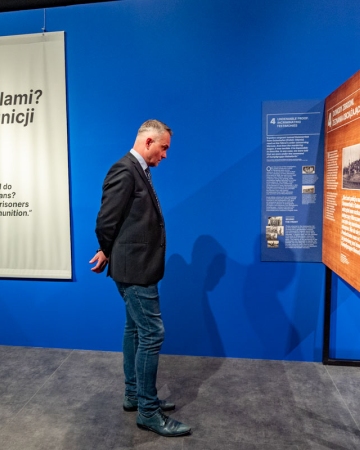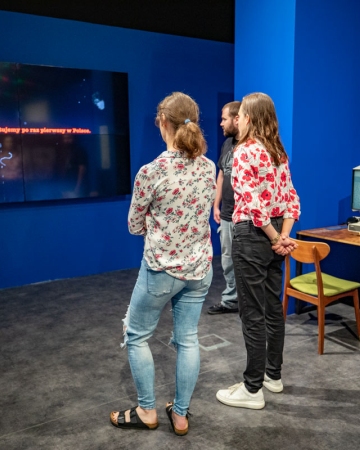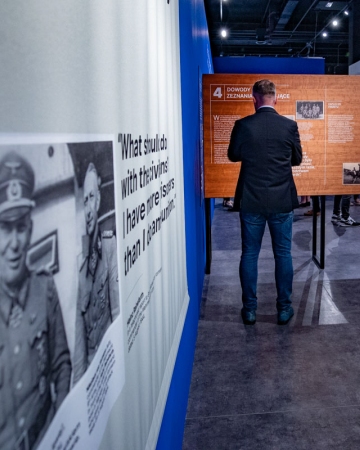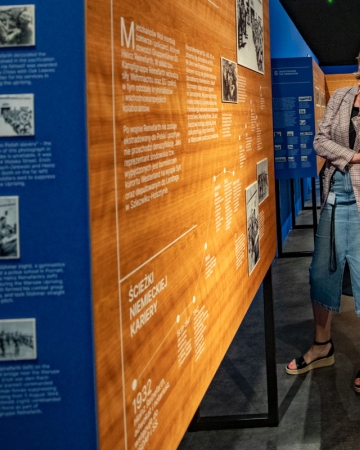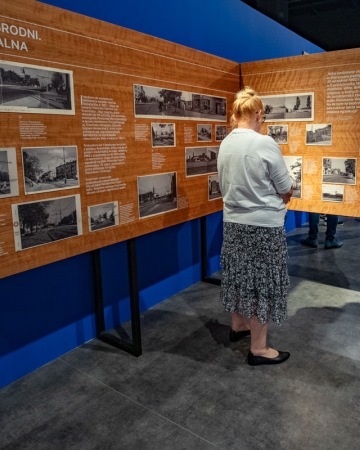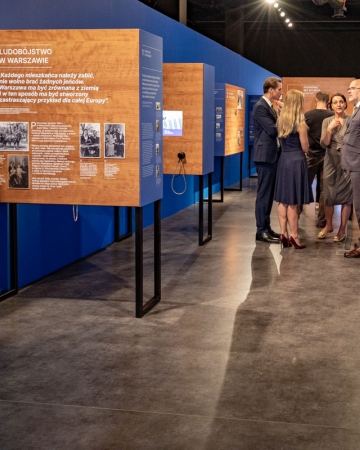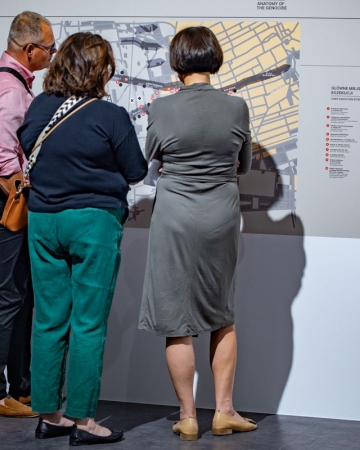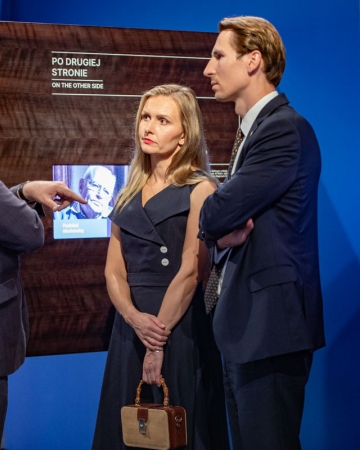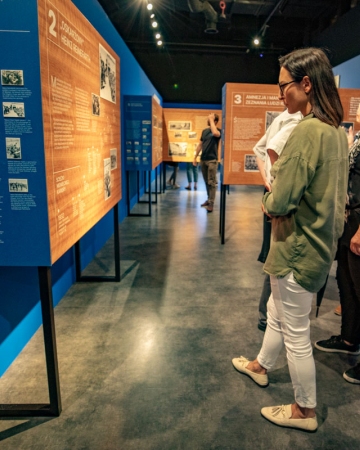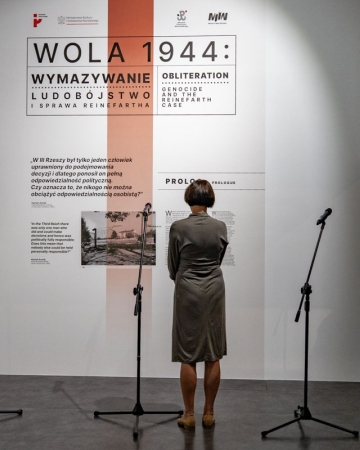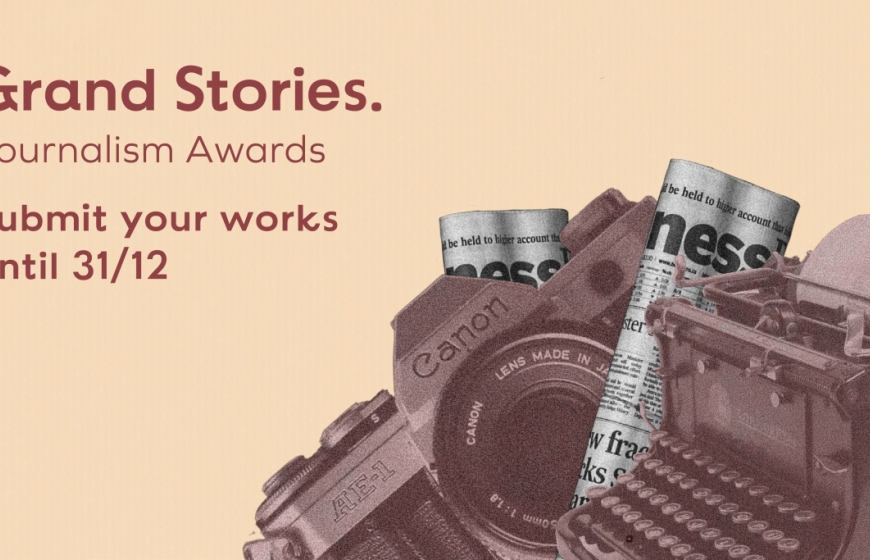OPENING OF THE EXHIBITION "WOLA 1944: ERASURE. GENOCIDE AND THE REINEFARTH CASE"
On August 3, 2023, at the Museum of the Second World War in Gdańsk, the opening of the exhibition "Wola 1944: Erasure. Genocide and the Reinefarth Case" took place.
The director of the Museum of the Second World War in Gdańsk, Dr. Grzegorz Berendt, addressed the attendees:
Our mission is to tell the story of the tragedy of the Second World War, with a particular emphasis on the experience of millions of Polish citizens. Those subjected to terror from the first days of that conflict, from September 1st, 1939, until the last moments of German occupation. The stories, especially those of surviving witnesses and victims, are among the most moving narratives about what a brutal genocidal force can lead to. In this exhibition, you will see specific examples of these tragic events. We ponder to what extent those events continued after the defeat of Nazi Germany, and this exhibition also deals with that aspect to no lesser extent.
Next, Dr. Magdalena Gawin, Director of the Witold Pilecki Institute of Solidarity and Valor, shared her thoughts:
Why is Wola significant and important? Because knowledge about Wola—that during the first five days of the Warsaw Uprising, the Germans exterminated street by street, building by building, the city's inhabitants—women, men, and children—reached us relatively late. When the Warsaw Uprising Museum was being built, when an in-depth research was conducted, it became clear that from several tens of thousands to even 60,000 people were killed, and this had not been common knowledge. Similarly, it was not common knowledge that Warsaw was razed not due to any military actions, but after the Uprising had already ended. These two events share one element. Wola's inhabitants died due to hatred, and the city was destroyed due to hatred. Neither of these tragic events and the terrible crimes had any impact on military matters. At this exhibition, voices from both sides will speak. Both soldiers, former SS men who took part in suppressing the Uprising and exterminating civilians, but also witnesses who managed to survive.
Kacper Płażyński, a Member of the Polish Sejm, also addressed the audience:
This is, of course, a very important exhibition because contrary to what one might think, it is not common knowledge, like the Warsaw Ghetto Uprising... Like the Volhynian Massacre. For 30 years, we've been uncovering these tragic events for our nation and acknowledging them. It's not surprising that it's not common knowledge abroad... Germany doesn't want to remember these crimes. Is that natural? Probably it's natural not to want to remember this shameful history. Historical education in our western neighbor, at the high school level, is reduced to remembering the victims of Auschwitz. In the textbooks, there's almost nothing about the Poles.
The event was also attended by the curator of the exhibition, Katarzyna Grabowska - Head of the Exhibitions Department at the Solidarity and Bravery Institute. Witold Pilecki.
The exhibition presents the German crimes committed against the civilian population in the first days of the Warsaw Uprising and the unsuccessful attempts to hold the German commander, Heinz Reinefarth, accountable. Between August 5th and 7th, 1944, following the orders of Adolf Hitler and Heinrich Himmler, the Germans killed between 15,000 and 60,000 people: men, women, and children. The crimes were committed by soldiers and policemen under the command of SS Gruppenführer Heinz Reinefarth. After the war, he worked in the FRG as a lawyer, became the mayor of Westerland on the island of Sylt, and was a member of the Landtag in Schleswig-Holstein. Despite many efforts, he was never brought to justice.
The exhibition provides insight into the German atrocities committed against the civilian population in the early days of the Warsaw Uprising and the unsuccessful attempts to hold the German commander, Heinz Reinefarth, accountable.
The exhibition is free and open to visitors from August 3rd to September 15th, 2023.
Host: Museum of the Second World War in Gdańsk
Organizers: Witold Pilecki Institute of Solidarity and Valor, Warsaw Uprising Museum
Exhibition Partners: Ministry of Culture and National Heritage, Landesarchiv Schleswig-Holstein, Witold Pilecki Institute in Berlin, Wolskie Centrum Kultury






